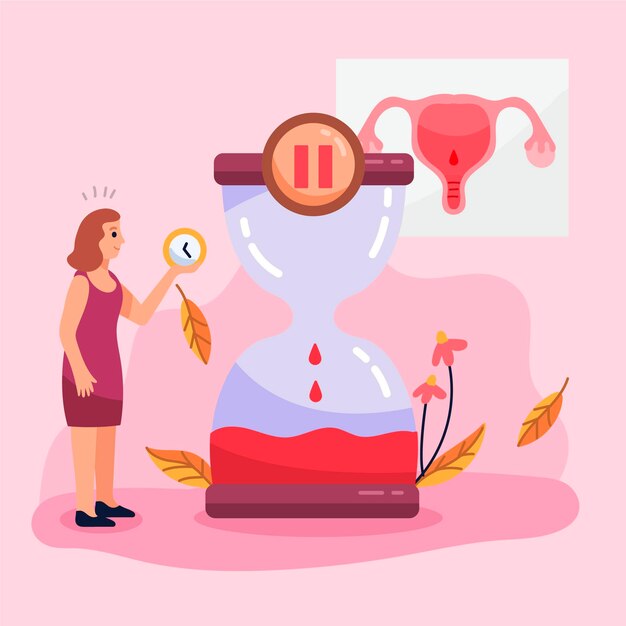
Most women aren’t thrilled about their periods, but they do notice when their cycle is irregular. Are you someone who has irregular periods? Have you looked into why this happens? Before diving into the causes, it’s helpful to understand how the menstrual cycle works.
### An Overview of the Menstrual Cycle
Periods usually begin between ages 10 and 16, during puberty, and continue until menopause, typically between ages 45 and 55. Throughout these years, eggs in the ovaries mature in a roughly 28-day cycle. Around the fifth day of this cycle, about twenty eggs start to mature in fluid-filled sacs called follicles. By the fourteenth day, one follicle matures fully and releases an egg for fertilization. The other follicles are then reabsorbed by the body. This mature follicle becomes the corpus luteum, which produces the hormone progesterone to prepare the uterus for a possible pregnancy. If fertilization doesn’t occur, the egg disintegrates, and the corpus luteum withers, leading to the shedding of the uterine lining, which is menstruation.
### What is a Regular Menstrual Cycle?
A regular menstrual cycle means the time between periods is fairly consistent, generally around 28 days, but can range from 20 to 35 days. Typically, a woman has her period for three to seven days once a month.
### What is an Irregular Menstrual Cycle?
An irregular menstrual cycle means the interval between periods varies each month. Sometimes it might come after 28 days, other times after 20 or 30 days. Terms like oligomenorrhea describe infrequent periods with more than 35 days between them, while metrorrhagia refers to irregular, yet frequent, periods. Irregular periods are common, especially among teenagers, and can have various causes that need proper treatment.
### Causes of Irregular Menstrual Cycles
Aside from pregnancy, several primary causes can lead to irregular periods:
1. **Excessive Body Weight/Obesity**
– Extra fat cells produce excess androgen, making the ovaries think the body is pregnant, which stops menstruation. Obesity can also lead to insulin resistance and polycystic ovary syndrome (PCOS). Women with PCOS often don’t ovulate and have irregular periods.
2. **Polycystic Ovary Syndrome (PCOS)**
– PCOS is a hormone imbalance affecting the ovaries. The hormones triggering follicle development aren’t enough to cause ovulation but can cause cysts to form, leading to infertility. The absence of ovulation means no progesterone is produced, resulting in missed or irregular periods. Symptoms include hair growth, weight gain, ovarian cysts, and heart disease.
3. **Eating Disorders**
– Disorders like anorexia nervosa and bulimia nervosa disrupt the reproductive system and cause irregular periods. Anorexia involves extreme weight loss due to dieting and over-exercising, often leading to period suppression. Bulimia involves overeating followed by purging, leading to obesity and infertility.
4. **Hyperthyroidism or Hypothyroidism**
– Thyroid issues affect the menstrual cycle through the endocrine system, which releases and distributes hormones. An underactive thyroid (hypothyroidism) often causes longer, heavier periods, while an overactive thyroid (hyperthyroidism) can cause prolonged intervals between periods or skipping periods altogether.
5. **Medication**
– Certain medications, like birth control pills and drugs treating mental disorders, depression, and gastrointestinal conditions, can also cause irregular periods. Illegal drugs like cocaine can impact the menstrual cycle as well.
6. **Pregnancy**
– Pregnancy halts menstruation as the body produces hormones to support the unborn baby, leading to lighter or missed periods before they stop entirely.
### Other Causes of Irregular Periods
– **Primary ovarian insufficiency**
– **Excessive exercise**
– **Poorly controlled diabetes**
– **Stress**
– **Breastfeeding**
– **Certain illnesses** (liver disease, tuberculosis, pelvic organ issues, irritable bowel syndrome)
– **Excessive alcohol consumption**
– **Approaching menopause**
If you frequently miss your periods, it’s essential to consult a healthcare professional to determine the underlying cause and get appropriate treatment.